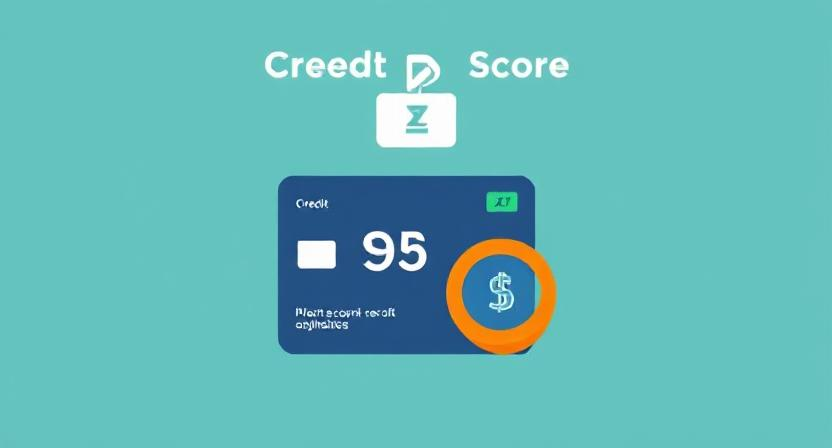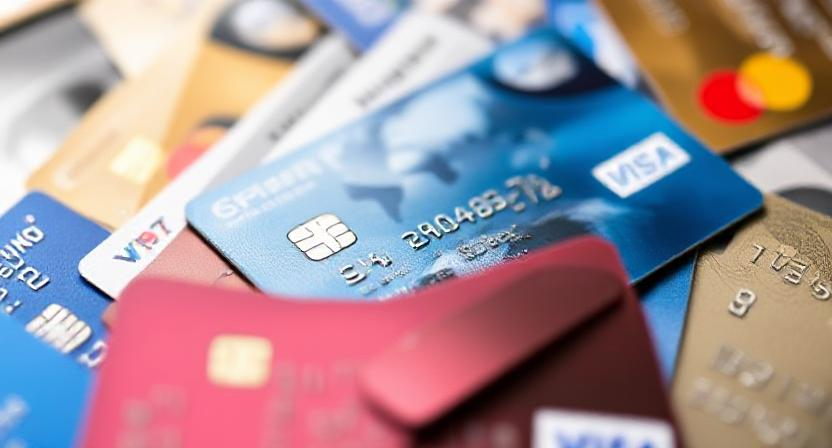In the dynamic financial landscape of the UAE, your credit score plays a pivotal role in shaping your financial future. It serves as a numerical representation of your creditworthiness, essentially telling lenders how reliable you are in managing your financial obligations. A strong credit score not only opens doors to a wider array of financial products but also helps you qualify for better interest rates and more favorable terms, particularly when it comes to credit cards. Conversely, a low credit score can limit your options, potentially leading to rejections or less attractive offers. Therefore, understanding how to improve your credit score in the UAE is essential for anyone seeking to enhance their financial standing.
Table of Contents
The Significance of Your Credit Score in the UAE
The Al Etihad Credit Bureau (AECB) is the central authority responsible for collecting credit information and calculating credit scores for individuals and businesses in the UAE. Your AECB credit score, which typically ranges from 300 to 900, provides a snapshot of your financial behavior. A score above 700 is generally considered good, while anything above 730 is excellent, indicating a very low risk to lenders. Conversely, a score below 620 is often deemed fair or poor, suggesting a higher risk of default. Banks and financial institutions in the UAE extensively use this score to assess your eligibility for credit cards, loans, mortgages, and even certain insurance policies. A higher score translates into increased trust from lenders, potentially leading to:
- Higher Credit Limits: Banks are more willing to offer you a larger credit line when they perceive you as a low-risk borrower.
- Lower Interest Rates: A good credit score often qualifies you for more competitive interest rates on credit cards and loans, saving you significant money over time.
- Faster Approvals: The application process for credit cards and other financial products can be expedited with a strong credit score, as lenders require less extensive vetting.
- Access to Premium Cards: Banks reserve their best credit card offerings, with exclusive benefits and rewards, for individuals with excellent credit histories.
- Better Loan Terms: Beyond credit cards, a strong score can lead to more favorable terms on personal loans, auto loans, and mortgages, impacting your long-term financial commitments.
The Future is Face: UAE Embraces Digital ID and Bids Farewell to Physical Emirates Cards
Factors Influencing Your Credit Score
Understanding the components that contribute to your AECB credit score is the first step toward improving it. Several key factors are at play:
1. Payment History (Most Significant Factor): Your track record of making timely payments on all your credit obligations, including credit cards, loans, utility bills, and even telecommunication bills, holds the most weight in your credit score calculation. Consistently making payments on or before the due date demonstrates financial responsibility. Conversely, late payments, missed payments, or defaults can severely damage your score, with negative marks remaining on your credit report for up to five years.
2. Credit Utilization Ratio: This ratio measures the amount of credit you are currently using compared to your total available credit limit. For example, if you have a total credit limit of AED 50,000 across all your credit cards and you have utilized AED 20,000, your credit utilization ratio is 40%. Financial experts generally recommend keeping this ratio below 30% to maintain a healthy score. A high utilization ratio can signal to lenders that you are over-reliant on credit, potentially making you a higher risk.
3. Length of Credit History: The longer your credit accounts have been open and in good standing, the more positively it reflects on your credit score. A longer history provides lenders with a more comprehensive view of your payment behavior over time, indicating stability and responsible credit management. Therefore, avoid closing old credit accounts, even if you no longer use them frequently, as this can shorten your average credit age.
4. Credit Mix: Having a diverse mix of credit types, such as credit cards, personal loans, or auto loans, can positively impact your score. This demonstrates your ability to responsibly manage different kinds of debt. However, it is crucial to acquire new credit judiciously and only when genuinely needed.
5. New Credit Applications (Hard Inquiries): Each time you apply for new credit, such as a credit card or a loan, lenders typically perform a “hard inquiry” on your credit report. While a single hard inquiry has a minimal impact, multiple inquiries within a short period can lower your score. This signals to lenders that you might be desperate for credit or taking on too much debt too quickly. Therefore, apply for new credit only when necessary and space out your applications.
6. Bounced Cheques: In the UAE, bounced cheques have a severe negative impact on your credit score. They indicate a serious lapse in financial responsibility and can lead to legal repercussions. Always ensure sufficient funds are available to cover any cheques you issue.
Actionable Steps to Improve Your Credit Score
Improving your credit score is a gradual process that requires consistent effort and disciplined financial habits. Here are practical steps you can take to boost your AECB credit score:
1. Obtain and Review Your Credit Report Regularly: Your first crucial step involves requesting a copy of your credit report from the AECB. This allows you to gain insights into your credit history and identify any potential errors or inaccuracies. Carefully review your report for incorrect account information, fraudulent activity, or payments that are wrongly marked as late. If you find any discrepancies, dispute them immediately with the AECB, as correcting these errors can significantly improve your score.
2. Pay All Your Bills On Time, Every Time: As payment history is the most critical factor, prioritize making all your payments by or before their due dates. This includes credit card bills, loan installments (EMIs), utility bills (electricity, water, internet), and even phone bills. Set up payment reminders on your phone, calendar, or use automatic payment features offered by your bank to ensure you never miss a due date. Even a single late payment can negatively affect your score for a prolonged period.
3. Reduce Your Credit Utilization Ratio: Focus on paying down your outstanding credit card balances. Aim to keep your credit utilization ratio below the recommended 30%. For instance, if your total credit limit is AED 10,000, try to keep your outstanding balance under AED 3,000. Paying more than the minimum due each month significantly helps in reducing your debt faster. If you have multiple credit cards, consider paying off the ones with the highest interest rates first to reduce your overall debt burden.
4. Limit New Credit Applications: Resist the temptation to apply for multiple credit cards or loans within a short timeframe. Each “hard inquiry” from a lender can temporarily lower your score. Only apply for new credit when you genuinely need it, and consider spacing out your applications by at least six months to minimize the impact on your score.
5. Keep Old Credit Accounts Open: The length of your credit history positively influences your score. Therefore, avoid closing old credit card accounts, even if they have a zero balance. Closing them reduces your total available credit and shortens your average credit age, which can negatively impact your score. If an account has an annual fee, consider negotiating with the bank for a waiver or opting for a no-fee alternative instead of closing it entirely.
6. Diversify Your Credit Mix (Cautiously): While a diverse credit mix can be beneficial, do not take on new debt unnecessarily just to diversify your portfolio. If you are planning to take out a personal loan or an auto loan in the future, managing these responsibly alongside your credit cards can demonstrate your ability to handle different types of credit. Always ensure you can comfortably manage any new debt you acquire.
7. Avoid Bouncing Cheques: Always ensure you have sufficient funds in your bank account to cover any cheques you issue. Bounced cheques are viewed very negatively by lenders in the UAE and can severely impair your creditworthiness, making it extremely difficult to obtain future credit.
8. Consider a Secured Credit Card: If you have a very low credit score or no credit history in the UAE, a secured credit card can be an excellent starting point. These cards require a cash deposit as collateral, which typically acts as your credit limit. Using a secured card responsibly and making timely payments helps you build a positive credit history without posing a significant risk to the lender. After a period of responsible use (e.g., 6-12 months), you may become eligible for an unsecured credit card.
How Long Does It Take to See Improvements?
Improving your credit score is not an overnight process; it requires patience and consistent good financial behavior. However, you can typically expect to see positive changes over time:
- 3-6 Months: You might observe minor improvements, especially from consistently making timely payments and reducing your credit utilization.
- 6-12 Months: More significant improvements can become evident if you diligently pay off debts, correct any errors on your report, and maintain good habits.
- 12+ Months: Long-term improvements and a strong, healthy credit score result from sustained responsible credit management over a year or more.
Consistency is truly the key to improving your credit score. By actively monitoring your credit report, making timely payments, managing your credit utilization, and applying for new credit judiciously, you can steadily improve your creditworthiness. This, in turn, will unlock a world of better financial opportunities, including qualifying for those desirable credit cards with superior benefits and more favorable terms in the UAE. Take control of your financial health today, and your future self will thank you for it.

